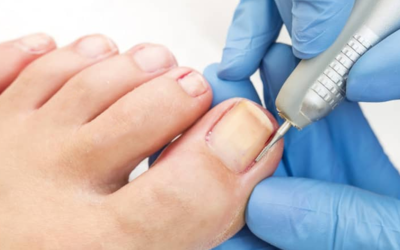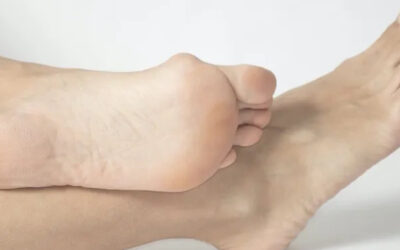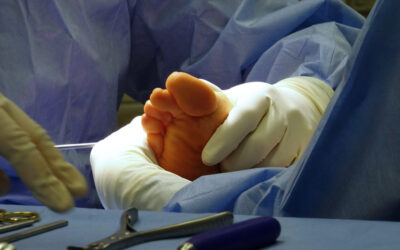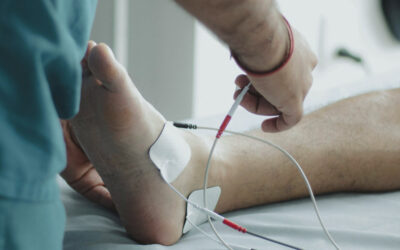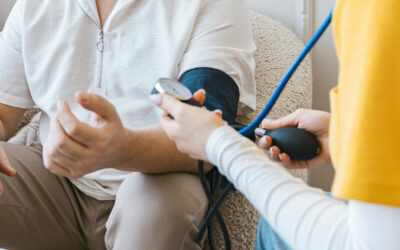Wounds, whether minor cuts, scrapes, or more significant injuries, are a part of life. Proper wound care is essential to promote healing, prevent infection, and minimize scarring.
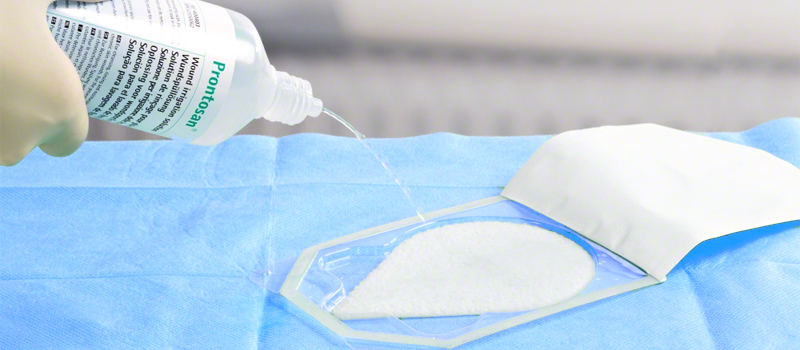
While minor wounds can often be managed at home, it’s crucial to know the correct steps to ensure optimal healing and avoid complications. At Capital Foot Care, our expert podiatrists—Dr. Muhammad A. Khalid, Dr. Fritz-Andre Duterlein, and Dr. Herman Zarate—are here to guide you through the best practices for wound care at home and help you recognize when it’s time to seek professional treatment.
Why Proper Wound Care Matters
A wound that is not properly cared for can become infected, slow the healing process, and lead to complications such as chronic wounds or scarring. This is especially critical for individuals with diabetes, peripheral artery disease (P.A.D.), or compromised immune systems. By following the proper steps, you can promote faster healing, reduce pain, and lower the risk of complications.
The Dos of Wound Care at Home

Here are the essential steps you should take to properly care for a wound at home:
- Clean the Wound Thoroughly
Start by washing your hands to prevent introducing bacteria into the wound. Gently clean the wound with lukewarm water and mild soap. Avoid using hydrogen peroxide or alcohol, as they can irritate the skin and delay healing. For deep wounds, rinse under running water to remove debris.
- Apply an Antiseptic
Once the wound is clean, apply an antiseptic or antibacterial ointment to reduce the risk of infection. This creates a barrier against bacteria and keeps the wound moist, which is essential for healing.
- Cover the Wound
Use a sterile bandage or dressing to protect the wound from dirt, bacteria, and further injury. Change the dressing daily or whenever it becomes wet or dirty.
- Keep the Wound Moist
Moist environments help wounds heal faster. Use ointments or specially designed dressings that retain moisture while protecting the wound.
- Monitor for Signs of Infection
Check the wound daily for signs of redness, swelling, increased pain, warmth, or pus. These are warning signs of infection, and you should seek medical attention if they occur.
- Rest and Elevate
If the wound is on a limb, elevate it to reduce swelling and promote blood flow to the area. Rest the injured area to avoid further strain.
The Don’ts of Wound Care at Home

Avoid these common mistakes to prevent delaying the healing process or worsening the wound:
- Don’t Ignore Deep or Large Wounds
Deep, large, or heavily bleeding wounds may require stitches or professional care. Ignoring such wounds can lead to infection or improper healing.
- Don’t Pick at Scabs
While scabs are part of the healing process, picking at them can reopen the wound and increase the risk of infection.
- Don’t Overuse Antiseptics
Excessive use of strong antiseptics like hydrogen peroxide or iodine can damage healthy tissue and slow healing.
- Don’t Leave the Wound Uncovered
Leaving a wound open to air can dry it out and delay healing. It also increases the risk of exposure to dirt and bacteria.
- Don’t Ignore Persistent Pain or Redness
If the wound becomes increasingly painful, red, or swollen, it may indicate an infection or other complications. Seek medical advice promptly.
When to Seek Professional Help
While most minor wounds can be treated at home, there are times when professional care is necessary. Contact Capital Foot Care if you experience:
- A wound that won’t stop bleeding after applying pressure for 10 minutes
- Signs of infection, such as redness, swelling, or pus
- A wound that hasn’t improved after a week of home care
- A deep puncture wound or injury caused by a dirty or rusty object
- Wounds that occur in people with diabetes or compromised circulation
Our skilled podiatrists specialize in wound care and can provide advanced treatments, including debridement, infection management, and specialized dressings, to ensure your wound heals properly.
Why Choose Capital Foot Care?
At Capital Foot Care, we are committed to providing expert wound care tailored to your needs. Our experienced team—Dr. Muhammad A. Khalid, Dr. Fritz-Andre Duterlein, and Dr. Herman Zarate—offers comprehensive evaluations and treatment plans to promote healing and prevent complications.

For more information or to schedule an appointment, contact us at 301-927-FOOT (3668) or email us at [email protected]. Visit us at one of our convenient locations:
- 6510 Kenilworth Ave. Suite 2300, Riverdale, MD 20737
- 7610 Carroll Ave. Suite 380, Takoma Park, MD 20912
- 8816 Jericho City Drive, Largo, MD 20785
- 2041 Martin Luther King Jr Ave SE, Suite 103, Washington, DC 20020
- 1328 Southern Ave SE, Suite 209, Washington, DC 20032
Conclusion
Proper wound care at home is the cornerstone of healing and preventing complications. By following these dos and don’ts, you can help your wound heal faster and avoid unnecessary infections or scarring. However, if you notice signs of infection or are unsure about how to care for a wound, don’t hesitate to seek professional help. At Capital Foot Care, we’re here to provide expert care and ensure your feet stay healthy and strong. Contact us today for all your wound care needs.


